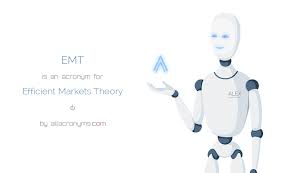Capital market equilibrium requires that market prices be set so that supply equals
demand for each individual security. In the context of the state-preference framework, one condition necessary for market equilibrium requires that any two securities
or portfolios with the same state-contingent payoff vectors must be priced identically.’
Otherwise, everyone would want to buy the security or portfolio with the lower price
and to sell the security or portfolio with the higher price. If both securities or portfolios are in positive supply, such prices cannot represent an equilibrium. This condition is often called the single-price law of markets.
If short selling is allowed in the capital market, we can obtain a second related
necessary condition for market equilibrium, i.e., the absence of any riskless arbitrage
profit opportunity. To short sell a security, an individual borrows the security from
a current owner and then immediately sells the security in the capital market at the
current price. Then, at a later date, the individual goes back to the capital market and repurchases the security at the then-current market price and immediately returns
the security to the lender. If the security price fell over the period of the short sale,
the individual makes a profit; if the security price rose, he or she takes a loss. In
either case the short seller’s gain or loss is always the negative of the owner’s gain
or loss over this same period.
When two portfolios, A and B, sell at different prices, where PA > pB, but have
identical state-contingent payoff vectors, we could short sell the more expensive portfolio and realize a cash flow of p,, then buy the less expensive portfolio, for a negative
cash flow of pB. We would realize a positive net cash flow of (p,— pB), and at the
end of the period, we could at no risk take our payoff from owning portfolio B to
exactly repay our short position in portfolio A. Thus the positive net cash flow at
the beginning of the period represents a riskless arbitrage profit opportunity and Since
all investors are assumed to prefer more wealth to less, this arbitrage opportunity is
inconsistent with market equilibrium.
In a perfect and complete capital market, any market security’s payoff vector
can be exactly replicated by a portfolio of pure securities. Thus it follows that when
short selling is allowed, the no—arbitrage profit condition requires that the price of
the market security be equal to the price of any linear combination of pure securities
that replicates the market security’s payoff vector.
Click here for government certification in Accounting, Banking & Finance





13 Comments. Leave new
unique one and informative..!
Nice article..xD
Nice article
Interesting article.
I believe your recent 4 articles are all related to same topic with different sub topics. It is good that you explain one whole topic in different articles. Helps readers understand better.
Good work..!
Nice and informative…!
Quite an interesting and informative post.
Informative article and you explained very well.
Well Explained
nice one
Good effort!
well elaborated!